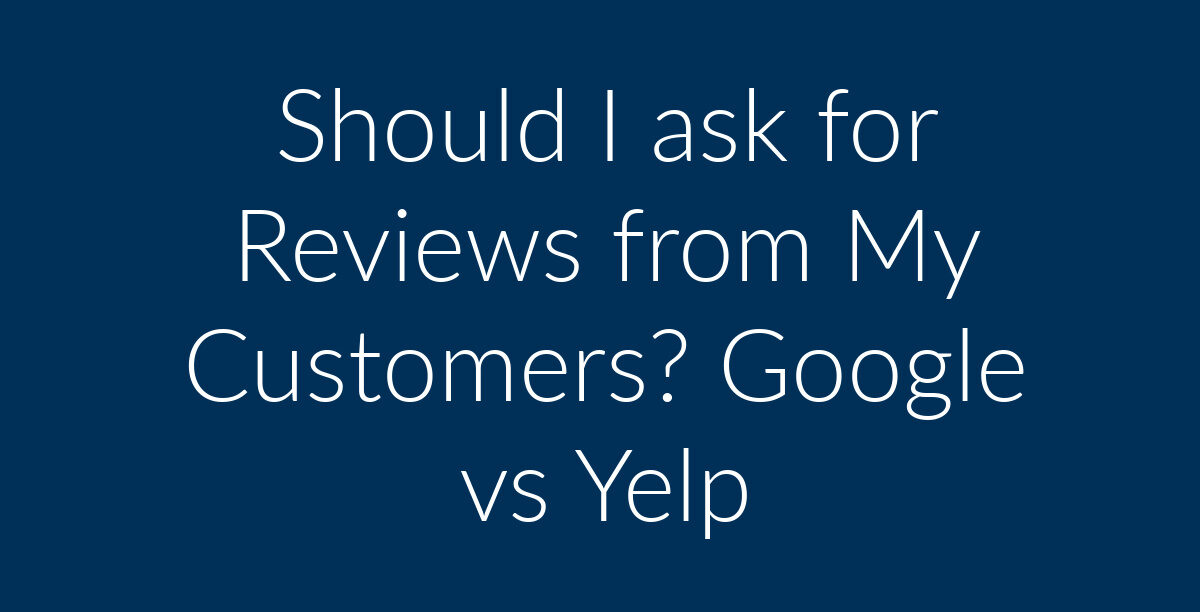Asking Reviews from Customers
Online reviews have become a powerful force in shaping business success across the globe, influencing customer decisions and overall brand reputation. But how do you effectively gather these valuable reviews?
Should you actively seek feedback from your customers, or could that approach potentially deter them from continuing to do business with you? Moreover, is it even permissible to solicit reviews, or are there certain guidelines you must follow?
Understanding the nuances involved in requesting reviews is crucial to ensuring that you not only comply with regulations but also foster positive relationships with your customers. What steps should you take to encourage customers to leave reviews, and how can you do so in a way that feels natural and appreciated rather than intrusive?
What Do Review Sites Say About Soliciting Customer Reviews?
In the digital age, online reviews are a cornerstone of business success, with countless platforms available for customers to share their experiences. However, not all review sites have the same policies when it comes to businesses asking for reviews. With so many business listing websites out there, each with its own terms and conditions regarding review solicitation, it’s essential to understand the differences. For this guide, Planet Marketing will focus on two of the most influential platforms: Google and Yelp.
Google: Encouraging Businesses to Request Reviews
Google, one of the most widely used search engines globally, actively encourages businesses to ask for reviews from their customers. If you’ve already claimed or created a listing on Google Business Profile, you’re probably familiar with the benefits of featuring prominently in local search results and Google Maps. Google’s policy is clear: once your listing is up and running, you should remind your customers to leave reviews on the platform.
Google’s encouragement goes beyond just asking for reviews. The platform also recommends that businesses respond to reviews promptly as a way to build customer trust and demonstrate a commitment to customer service. This interaction not only enhances your online presence but also helps in managing your brand’s reputation.
Yelp: Discouraging Review Solicitation
Yelp, another major player in the online review space, takes a contrasting approach. Yelp actively discourages businesses from soliciting reviews from their customers. The rationale behind this policy stems from Yelp’s commitment to keeping reviews as organic and unbiased as possible. The company believes that reviews should naturally reflect customers’ experiences without any external prompting.
Yelp’s concern is that businesses may only ask their most satisfied customers for reviews, which could skew the overall feedback and mislead potential consumers. To enforce this policy, Yelp has developed sophisticated algorithms designed to detect and flag reviews that appear to have been solicited.
Instead of asking for reviews, Yelp advises businesses to focus on delivering exceptional service. The idea is that if you provide a memorable experience, customers will be more likely to leave positive reviews on their own, which are viewed as more trustworthy by the platform’s users.
The Bottom Line: Know the Rules Before You Ask
Before you start asking your customers for reviews, it’s crucial to understand the rules of the platforms where you’re listed. While Google encourages review solicitation as a way to boost your online presence and build trust, Yelp insists on keeping reviews as organic as possible to ensure authenticity. By adhering to each platform’s guidelines, you can effectively manage your business’s reputation and leverage customer feedback to your advantage.
What Do Review Sites Say About Soliciting Customer Reviews?
1. Why Yelp Prohibits Businesses from Soliciting Reviews
One of the primary concerns with soliciting reviews is maintaining trust and integrity in the online review process. With studies showing that 88% of consumers trust online reviews as much as personal recommendations, allowing businesses to solicit reviews from select customers could undermine the reliability and credibility of reviews overall.
The Trust Factor
Trust is a significant issue when it comes to soliciting reviews. If businesses were allowed to request feedback only from their satisfied customers, it could skew the reviews and misrepresent the true customer experience. This selective approach would compromise the authenticity of the review process, which relies on unbiased and genuine feedback to provide a reliable picture of a business’s performance.
Offering Compensation for Reviews
A common strategy to boost review numbers is to offer incentives to customers, such as coupons or discounts on future purchases. This approach is often recommended by Online Reputation Management (ORM) companies as part of their services. The idea is that by providing rewards, businesses can encourage more customers to leave positive reviews.
Yelp’s Stance on Incentives
Yelp, however, firmly opposes the practice of offering incentives for reviews. According to Yelp’s terms and conditions, businesses are prohibited from providing compensation in exchange for reviews. This policy is part of Yelp’s broader effort to safeguard the authenticity of reviews and protect consumers from biased or manipulated feedback. Yelp actively monitors for such activities to ensure that reviews remain a trustworthy and valuable resource for consumers making informed decisions.
2. To Ask or Not to Ask: Navigating the Request for Reviews
When it comes to seeking reviews from your customers, the approach you take largely depends on the review platforms you’re targeting. If you’re focusing on platforms like Google, where soliciting reviews is encouraged, feel free to ask your customers for feedback. However, on platforms like Yelp, where soliciting is discouraged, it’s better to let reviews come in naturally. This approach helps ensure that the feedback you receive is genuine and reflective of your customers’ true experiences.
How to Properly Collect Online Reviews
Given the differing policies of platforms like Google and Yelp, understanding how to collect reviews effectively is crucial. The key is to make it easy for customers to provide feedback without overtly soliciting it.
One effective strategy is to include a dedicated feedback section on your website. For instance, Amazon provides a seamless way for customers to leave reviews on individual products and services. This feedback is prominently displayed using a star rating system, making it straightforward for potential customers to gauge the quality of your offerings.
By simplifying the review process and ensuring it is user-friendly, you encourage more customers to share their experiences organically. This not only complies with the policies of various review platforms but also enhances the credibility of the reviews you receive.
Automating the Process of Gathering Reviews
Automating the review collection process can streamline your efforts and ensure a steady flow of feedback. Many Online Reputation Management (ORM) companies offer tools that integrate with your website to facilitate this process. These tools typically involve software that can be embedded into your site.
When a customer makes a purchase, the system automatically sends a review request to them after a predetermined period. This is similar to the process you might have experienced when buying eBooks from Amazon. After you’ve had sufficient time to read the book, you receive an email asking for your review. This method helps maintain a consistent review collection process without requiring manual intervention.
Asking for Reviews: Available Mediums
In addition to using automated systems, there are several other methods to request feedback from your customers:
Timing is Key
Regardless of the method you choose, timing plays a crucial role in the effectiveness of your review requests. For example, Amazon waits a reasonable period before asking for reviews on eBooks, allowing customers ample time to form their opinions.
It’s important to strike a balance; asking for reviews once is generally sufficient. Overly frequent requests can annoy customers and potentially damage your brand’s reputation. By focusing on well-timed and respectful requests, you can gather valuable feedback while maintaining positive customer relationships.



